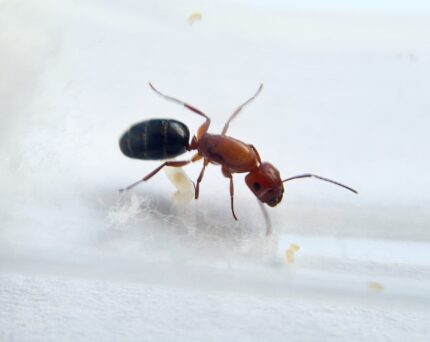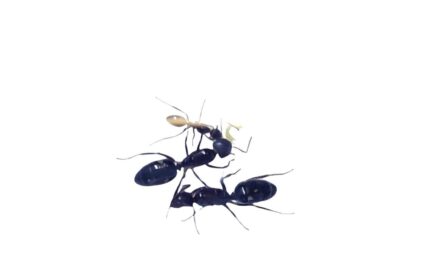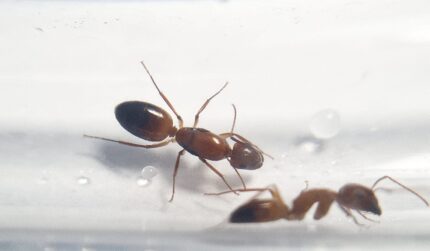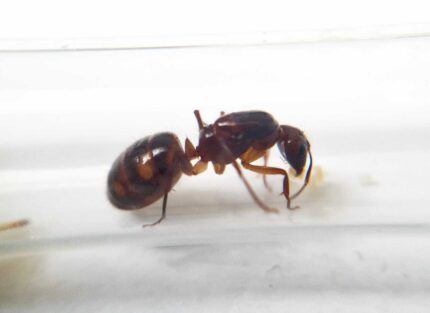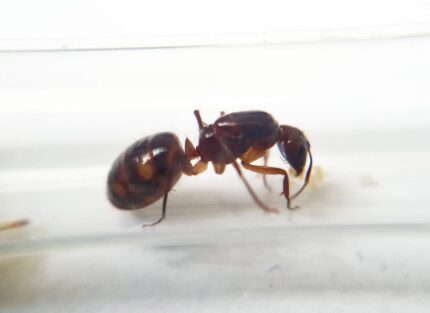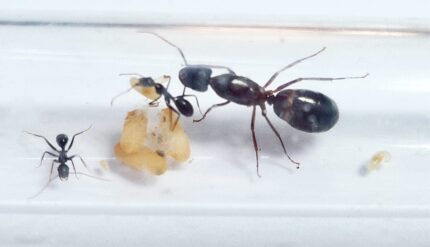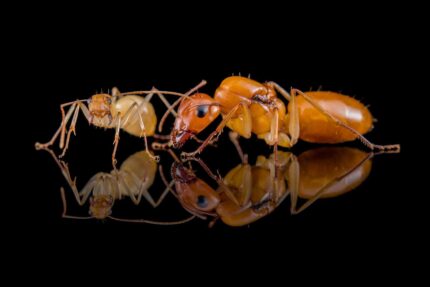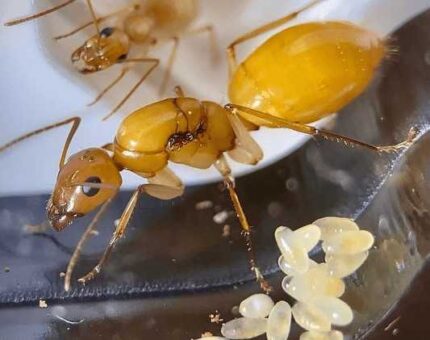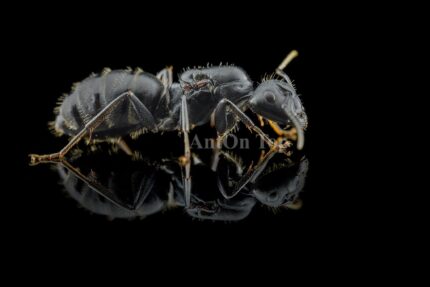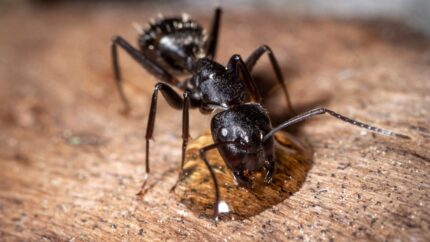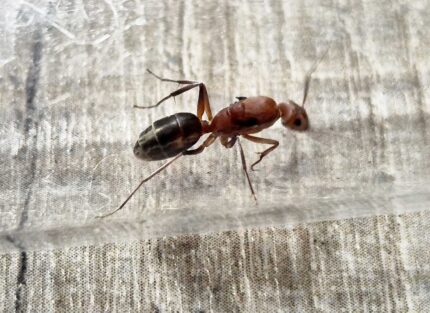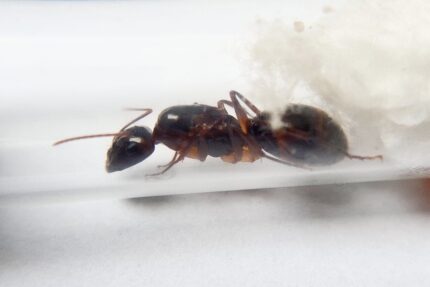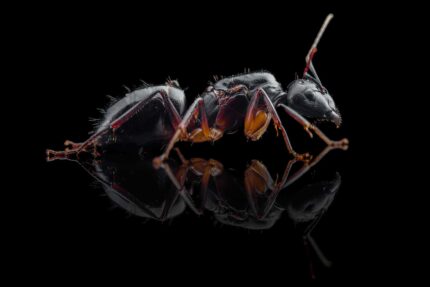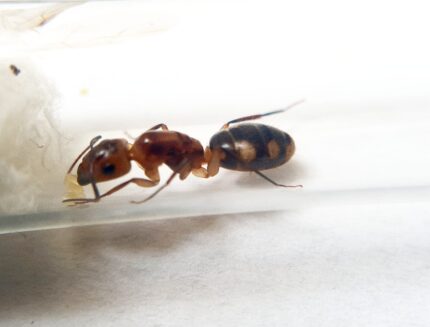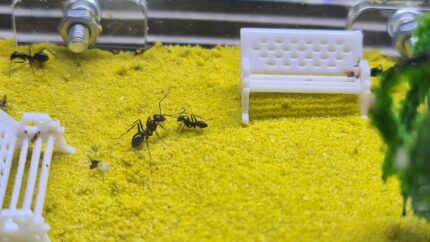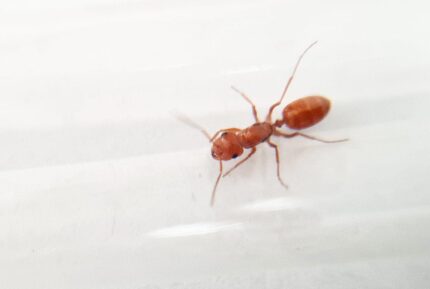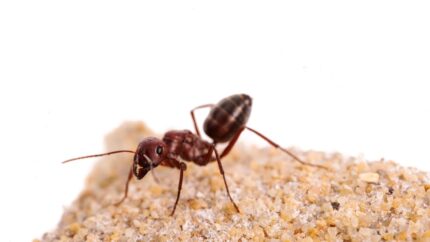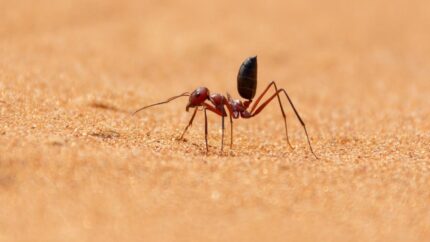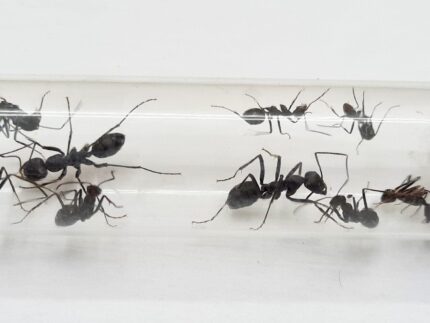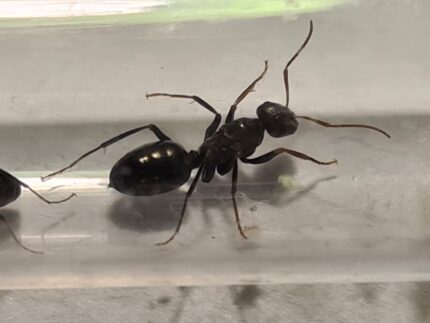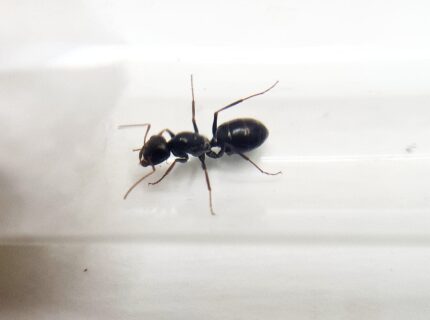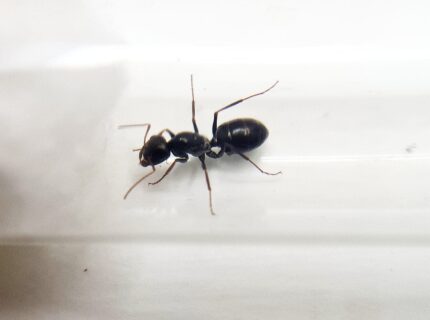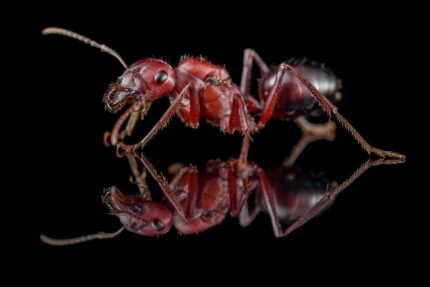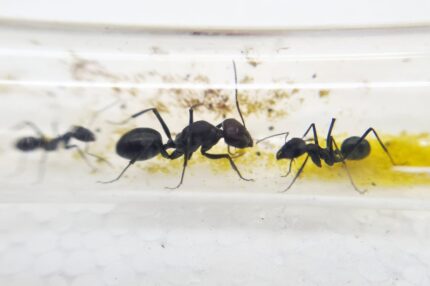Camponotus sayi
249,90 zł – 419,90 złCamponotus sayi is a species of ant with a monogynous colony type and a slow development speed. The colony can have up to 5,000 workers. The queen is 12-13 mm in size, workers are 4-7 mm, and majors are 9-12 mm. They have an orange-red head and chest, and a shiny black belly. Their nutrition includes food insects, syrup, fruit, and vegetables.
Camponotus sexguttatus
199,90 zł – 449,90 złThe Camponotus sexguttatus ant colony is polygynous and can have up to 10,000 workers. They have a medium development rate. The queen is 5-7mm in size, while workers are 4-5.5mm and majors are 4-6mm. They are glossy black with black stains on their abdomen. Their nutrition consists of food insects, syrup, fruit, vegetables, and jel.
Camponotus shaqualavensis
519,90 zł – 639,90 złCamponotus shaqualavensis is a monogynous ant species with colony sizes of up to 5,000 workers. They have a slow development speed and come in different sizes, with queens measuring 12-14mm, workers measuring 4-7mm, and majors measuring 8-11mm. They have an orange-red head and chest and a shiny black belly. Their diet includes food insects, syrup, fruit, and vegetables.
Camponotus substitutus
299,90 zł – 399,90 złFor Camponotus substitutus ants, it is important to provide a suitable nest setup made of acrylic or plaster. The ideal nest should have multiple chambers and tunnels for the ants to explore and establish their nests. The «Ant Farm» style setup is a popular option, made of plastic or glass, offering excellent visibility and insulation.
Camponotus sylvaticus
99,90 zł – 219,90 złCamponotus sylvaticus ants are a fascinating species known for their monogyny colony type and moderate development rate. With queens measuring 14-16 mm and workers ranging from 5-9 mm in size, these ants are a captivating addition to any ant enthusiast’s collection.
Camponotus turkestanus
299,90 zł – 609,90 złCamponotus turkestanus is a gold-colored ant species with a colony size of up to 10,000 workers. They have a monogyny or sometimes poly colony type and a medium development rate. Their nutrition consists of food insects, syrup, fruit, vegetables, jelly, and cooked chicken. The queen measures 12-15mm, workers are 5-10mm, and majors range from 6-16mm.
Camponotus vagus
69,90 zł – 229,90 złCamponotus vagus is a glossy black ant known for its calm nature. With monogynous colonies of up to 10,000 workers, their slow development rate is compensated for by the large colony size. The queen measures 14-17 mm, while the workers range from 5 to 9 mm in length.
Camponotus vestitus
199,90 zł – 309,90 złCamponotus vestitus is a species of ant that comes in various sizes and colors. They require specific nutrition, humidity, and temperature levels to thrive. Developing a colony of Camponotus vestitus requires careful attention to these guidelines. Overall, this ant species presents a unique and interesting opportunity for ant enthusiasts.
Camponotus wytsmani
479,90 zł – 599,90 złCamponotus wytsmani, a beautifully colored ant species, is the perfect addition to your ant farm. This product description explores their colony type, size, development speed, nutrition, and recommended nests for breeding to provide a unique and fascinating experience.
Camponotus xerxes
399,90 zł – 569,90 złCamponotus xerxes is a monogynous ant species with a colony size of up to 10,000 workers. They have a fast development speed and vary in size, with queens measuring 17-20 mm, workers measuring 5-12 mm, and major workers measuring 10-16 mm. The workers are pale yellow, while soldiers have partially dark heads. The mother ant is mostly black with a partially yellow belly and yellowish-brown legs. Their nutrition requirements are not specified.
Camponotus zonatus
459,90 zł – 579,90 złCamponotus zonatus is a species of ant with medium development speed. The colony is monogynous and can contain up to 6000 workers. The queen measures 12-14 mm in size, while workers range from 5-8 mm and majors from 7-11 mm. The ants are brown-orange in color with yellow points on the abdomen. They primarily feed on insect food such as cockroaches and crickets, as well as syrup, fruit, vegetables, jelly, and cooked food.


